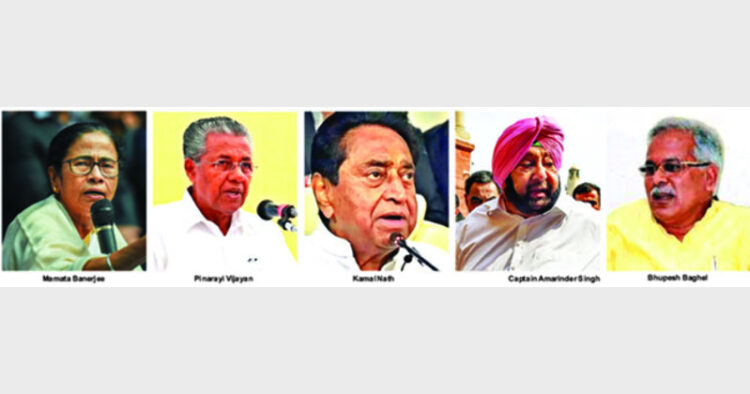
Can five states refuse to implement Citizenship Amendment Bill, 2019?
Chittarvu Raghu
Part XI of the Constitution of India pertains to the relations between the Union and the States. The concept of federalism is embedded in the said part in relation to the division of powers to make legislations inter-se between the Parliament and the State legislatures. The Parliament has got exclusive power to make laws in respect of matters enumerated in list – I (union list) of Schedule 7 of the Constitution. The Constitution confers certain power upon the State to make its own legislation viz. the matters enumerated in the list – II (state list) and list – III (concurrent list). The states are bound by the legislation made by the Parliament which is applicable to whole of the territory in India.
Article 13 of the Constitution of India contains an inclusive definition of “law”. One of the major legal sources is enacted law. Article 246 confers exclusive power to make laws with respect to any of the matters enumerated in list one in the 7th Schedule. Entry seventeen (17) of list – I pertains to citizenship, naturalization and aliens. Article 246(3) confers power on legislature of the States to make laws in respect of any matters enumerated in list – II of the seventh schedule only. And therefore a State cannot make any legislation in respect of the matters enumerated in list – I of the seventh schedule. Citizenship Amendment Bill, 2019 is a legislation made by the Parliament and therefore a “law in force”.
Article 15 prohibits discrimination on grounds of religion, race, cast, sex or place of birth. Article 15 (5) enables the State to make any special provision by law for the advancement of socially educationally backward classes of citizen including Schedule Castes and Schedule Tribe in the matters relating to admission into educational institutions. Similarly Article 16 provides equal opportunity in matters of employment. However both the Articles 15 & 16 use the word “citizen”, which means only a person who is a citizen of India can claim protection under the said articles.
In complete defiance of the provisions of the Constitution, five States are at loggerheads with the Government on CAA, setting dangerous precedent to the wisdom of the Constitution
The Citizenship Amendment Bill, 2019 has been attacked on various grounds based on the circumstances prevailing in each State. One of the major two grounds are (1) on the legal ground i.e., it is in gross violation of Article 14 of the Constitution of India and (2) that the beneficiaries under the said Bill would compete with the existing citizens in the matters of admissions and employment and disturb the local fabric. First issue has to be tested before the Hon’ble Supreme Court. In so far as latter is concerned, the five States i.e., West Bengal, Punjab, Kerala, Madhya Pradesh, and Chhattisgarh have declared that they would not implement the Legislation due to the local reasons. The question is whether such a power is vested with the said States or it can only be politically resolved. The Citizenship Amendment Bill, 2019 (Act) is duly made by the parliament by virtue of power under Article 246(1) of the Constitution of India. The State legislature does not have any power to make any legislation in respect of “citizenship” and therefore all the five States are bound by the law unless and until the same is held to be unconstitutional by the Hon’ble Supreme Court on the ground that it is in violation of Article 14 of the Constitution of India. The States cannot refuse to implement the said Act. Article 245(1) empowers the Parliament to make laws for the whole or any part of the territory in India. In case the States refuse to implement the said law, it would be in gross violation of the Constitution of India and there is a possibility of invoking Article 356 of Constitution of India. Article 356(1) of the Constitution of India states that if the President is satisfied that a situation has arisen in which the government of State cannot be carried in accordance with the provisions of the Constitution of India, the President may by proclamation assume to himself all or any of the functions of the State and declare that the powers of the legislature of the State shall be exercisable by or under the authority of the Parliament. If the five states refuse to implement the legislation, it would be unconstitutional and it may warrant invocation of Article 356 of the Constitution of India or impose sanctions for compliance with the same. Therefore the five states are bound to implement the law made by the Parliament unless and until it is politically resolved.
(The writer is a senior advocate)














Comments